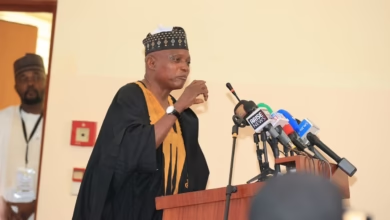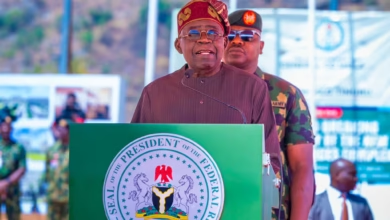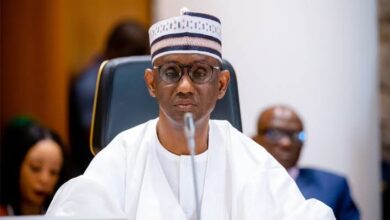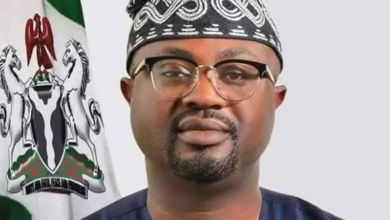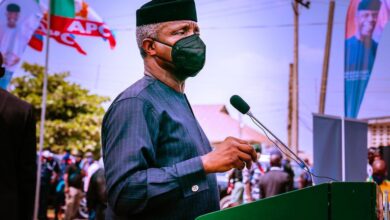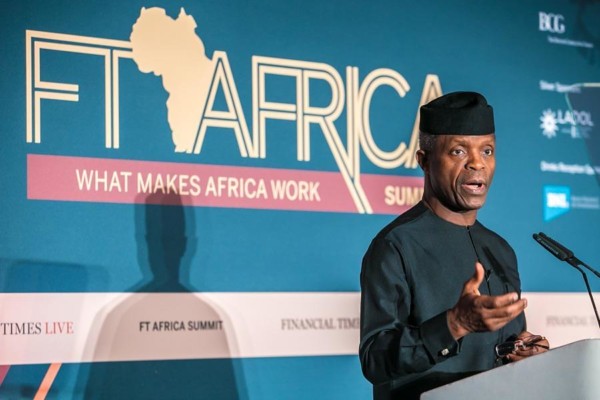
Since he assumed office on 29 May 2015 as the Vice President of the Federal Republic of Nigeria, Professor Yemi Osibanjo never left anyone in doubt as to what he intends to do while he remains the number two citizen of the country.
Professor Osinbajo as the Vice President of the Federal Republic of Nigeria has the mandate of overseeing the economic planning team and report, as well as make recommendations, to the President who takes the final decision.
During his election campaigns, the then Vice Presidential candidate of the All Progressives Congress, APC, now the ruling party, among other things made it clear to the electorate the promise to tackle two major things in Nigeria if elected: improving the lives of the common man and provision of job for teeming unemployed Nigerians.
Even though the government inherited a depleted economy with low foreign reserve, weak investments and uncoordinated economic policy which plunged the country into recession sooner, the Vice President was able, with his economic management team, to come up with programmes and policies that pulled Nigeria out of the recession and steadied the economy with millions of jobs created .
One major leap towards pulling Nigeria out of recession was the launch of the Economic Recovery and Growth Plan, ERGP, in April 2017.
The Economic Recovery and Growth Plan is an economic plan which builds on the 2016 Strategic Implementation Plan, SIP, a short term plan aimed at tackling corruption, improving security and rebuilding the Nigerian economy .
However, the ERGP seeks to build on the SIP by restoring growth, investing in people and building a globally competitive economy .
In restoring growth, the plan focused on macro-economic stability and economic diversification. Macro- economic stability, it is further projected , would be achieved by undertaking a fiscal stimulus through the manipulation of fiscal instruments such as tax and government spending.
Diversification, on the other hand is being achieved through the diversification into the agricultural and manufacturing sectors, solid minerals, services, etc.
With the ERGP, a global competitive economy would be built in Nigeria by investing in infrastructure, improving the business environment and promoting a digital- led growth. This is already underway.
It is also important to note that these broad objectives would be achieved by ensuring macro-economic stability, agriculture and food security, energy, transport infrastructure and driving industrialisation focusing on small and medium scale enterprises. The Buhari administration has evidently shown it is on the right track with these.
Apart from the launch of the ERGP which implementation led to Nigeria exiting recession last year, VP Osinbajo has undertaken other engagements, initiated policies, and programmes aimed at revamping the economy, creating jobs and improving the living standard of Nigerians.
Following its launch by President Muhammadu Buhari in April 2017, the implementation of the ERGP has seen the country’s economy record significant strides, including its exit from recession last year and improved stability in the fiscal and monetary markets.
For instance, in sustaining the gains made by ERGP, the Vice President on 5 February, 2018 launched the Economic and Growth Recovery Plan (ERGP) Focus Laboratories on Power, Agriculture and Manufacturing to Fast-Track economic growth.
During the launch, the Vice President said that the newly inaugurated Focus Labs would further boost economic growth and ensure that Nigeria continued its journey of building a competitive economy.
Adding that “The labs will operate by bringing together all private and public sector officials to achieve the ERGP’s objective of reaching seven per cent economic growth by 2020.”
The laboratory groups brought private/public sector participants and potential investors together to think through the implementation of their specific areas of focus.
It is stating the obvious that it was based on the ERGP policy that agricultural sector alone was able to create six million jobs in the country within the past couple of years.
Vice President Prof Yemi Osinbajo in January this year led the Nigerian delegation to Davos, Switzerland for the 48th World Economic Forum Annual Meeting. At the forum, apart from presenting Nigeria’s view point on the theme of the event “Creating a Shared Future in a Fractured World ”, Osinbajo held a number of bilateral meetings with representatives of other countries, international business interests and development partners.
The VP also held a special forum with Development Finance Institutions and Global Institutional Investors in support of the Economic Recovery and Growth Plan of the present administration. One fact about VP’s economic policies is that they are friendly, implementable and have engineered a total turn around in nigeria’s economic growth.
On 13th February, 2018, Vice President Yemi Osinbajo launched the National Micro Small and Medium Enterprises, MSME clinic in Kogi State as part of the Federal Government’s social investment programme geared towards helping the people engage productively in the economic life of the nation.
During the launch, Professor Osinbanjo highlighted that the programme was aimed at giving the people a better life, and that Nigeria’s future economic growth will be driven by small and medium-sized businesses.
The VP who also launched the MSME programme in Oshogbo, Osun State, said that the Buhari administration will continue to support small businesses nationwide through its economic initiatives.
The Vice President has continued to stress that there are enough resources to go round if the country and its people use its resources well, while urging Nigerians to tap into the potential in their communities to create wealth through entrepreneurship and MSMEs.
It is pleasing to know that over 4,250 participants registered to take part in the Oshogbo MSME clinic while nearly 206 exhibitors across the ago-allied, manufacturing and retail sectors participated.
The small business is the engine of growth of any nation. And Vice President Osinbajo understands this.
Indeed, VP Osibanjo has demonstrated the ingenuity and astuteness required to tackle a fledgling economy like Nigeria’s.
His giant strides both in policy initiation and implementation has set a roadmap for the brighter future of Nigeria ‘s economy.

